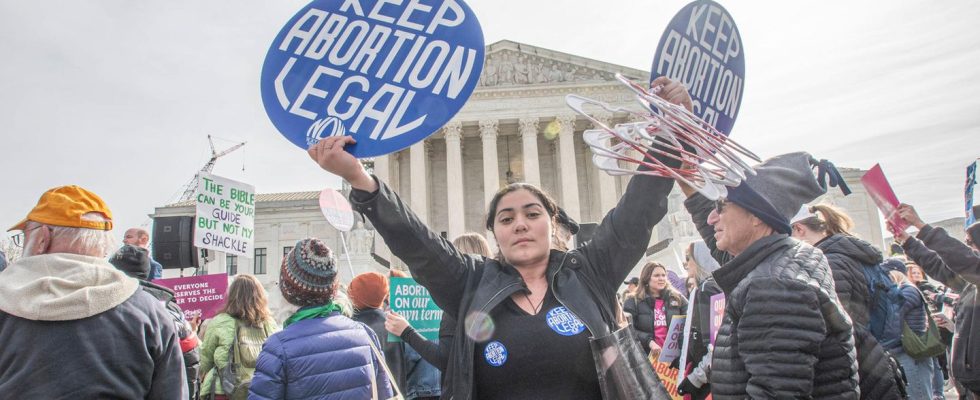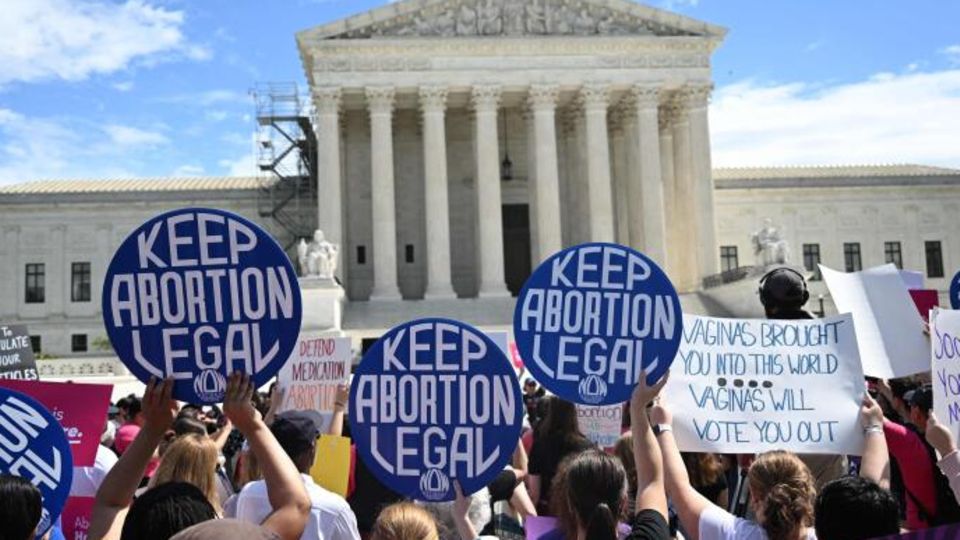Justice
Arizona Supreme Court upholds 1864 abortion law
A demonstrator protests for abortion rights in the USA. One of the strictest abortion laws could now come into force in Arizona.
© Patsy Lynch / Imago Images
The law comes from a time when Arizona wasn’t even a US state, and now a 160-year-old abortion law could come into force again. President Biden is sharply critical – but could benefit from the decision.
Exceptions only apply if the life of the woman concerned is in danger. However, it is unclear to what extent the law will be enforced. The judges initially set a 14-day deadline in order to have any outstanding constitutional questions clarified before a lower court.
Attorney General does not want to enforce law
The law will not come into force within this period. Due to a separate lawsuit, this period could then be extended by another 45 days. The Arizona Attorney General also announced that she would not enforce the law.
“I am saying clearly: As long as I am attorney general, no woman or doctor in this state will be prosecuted for this draconian law,” said Democrat Kris Mayes, who was elected to office.
However, this would not necessarily stop law enforcement at the local level from following the law, US media said. Abortion advocates warned that this uncertainty alone would lead to severely limited access to abortion in the state.
Accordingly, clinics would simply no longer carry out the procedure for fear of criminal prosecution. Currently, abortion is banned in Arizona starting at 15 weeks of pregnancy unless the mother’s life is in danger.
Abortions in Arizona: Long prison sentences possible
The 19th-century ban does not directly criminalize women seeking abortions, but rather people who help them do so. For example, a doctor could be sentenced to a prison sentence of up to five years. Although the law became invalid in 1973 with the nationwide constitutional right to abortion in the USA, it was never actually abolished.

Around 50 years later – in June 2022 – the Supreme Court overturned the important landmark ruling on nationwide abortion rights. Since then, sovereignty over legislation has once again rested with the individual states. A legal patchwork has emerged.
Abortions are now practically banned in 16 federal states, while elsewhere legislation that is still quite liberal by German standards still applies. In Arizona, the almost complete ban initially came into force from the 15th week of pregnancy, which was then followed by a lot of legal tug-of-war. With Tuesday’s decision, the much stricter law from 1864 could now become valid again.
Swing state Arizona
US President Joe Biden immediately expressed criticism. The “cruel ban” was enacted “before Arizona was even a state and long before women were given the right to vote,” the White House said in a statement. The ruling is “the result of the extreme agenda of Republican officials who are committed to depriving women of their freedom.”
Women’s March
50 years after Roe vs. Wade, women in the USA are again protesting for abortion rights
Polls show a majority of people in the US support limited abortion rights. The issue plays a major role in the presidential election campaign – only on Monday, Biden’s Republican competitor Donald Trump caused disappointment among abortion opponents because, contrary to the expectations of his right-wing conservative base, he did not want to explicitly speak out in favor of a national ban on abortion.
The Supreme Court’s decision in Arizona is also explosive because the state is considered a so-called swing state that cannot be firmly attributed to either Democrats or Republicans. Even before the ruling, abortion advocates had sought to put the issue on the ballot in November. If they are successful – which observers expect – Arizona would also vote on the question of whether the right to abortion should be enshrined in the state constitution. Such a vote in the swing state could serve as an important campaign aid for Biden’s Democrats.


